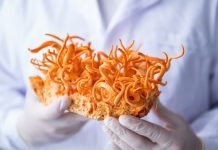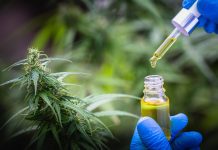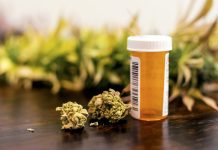
American Cannabis Nurses Association President Eloise Theisen speaks to MCN about cannabis research, policy and clinical practice.
Eloise Theisen is President of the American Cannabis Nurses Association, a US-wide organisation aimed at broadening nurses’ education on endocannabinoid therapeutics. As cannabis and its derivatives take an increasingly prominent role in clinical medicine, the need is growing for nurses who are well-versed in the medical applications of cannabis and the surrounding ethical and policy implications.
Theisen speaks to MCN about cannabis research, regulation and the unique challenges of cannabis nursing in the US.
What are the goals and ethos of the American Cannabis Nurses Association?
The mission of the ACNA is to advance excellence in cannabis nursing practice through advocacy, collaboration, education, research, and policy development. Our short-term goals are to provide educational resources for members that allow them to increase their cannabis knowledge and gain vital resources. In the longer term, the goal is to obtain certification for cannabis nursing and allow it to be recognised as a nursing speciality.
What is cannabis nursing? Is there a defined process for becoming a cannabis nurse?
There is currently no defined process for becoming a cannabis nurse. While ACNA is working on this, it will be years before we reach certification. Cannabis nursing has more barriers to entry than in other nursing professions. Currently, with the Schedule 1 status of cannabis in the United States, research is limited. In order to establish cannabis as a nursing speciality, we must rely on evidence-based research, which is lacking. It’s a catch-22. We know our patients are using it and getting relief from symptoms, yet we cannot study the plant to determine protocols with dosing, cannabinoid profiles, drug-drug interactions, and different disease states.
Cannabis nursing is still in the process of being defined. The ACNA does have scope and standards, which are outlined in a living document. As more nurses enter the industry, we are recognising that there are many roles nurses can serve. Currently, we see nurses in the cannabis industry providing education to patients, cannabis companies, healthcare providers, and politicians. Many nurses have started their own cannabis companies and continue to be leaders in the industry. Right now, the industry is still young enough that you can find a niche and create a business based on that niche.
What challenges do cannabis nurses face in their work?
There are many unique challenges in cannabis nursing. The fact that it remains a Schedule 1 drug in the US makes it difficult for us to conduct business; banks see the word cannabis and they refuse to work with you. The ACNA is a non-profit company that collects membership dues and we have been denied accounts and even shut down after establishing accounts. Landlords are unlikely to rent spaces to anyone in the cannabis industry, even those who are running legitimate medical or education companies.
In addition, there is the continued stigma associated with cannabis which is alive and well. Cannabis users are still portrayed as lazy, stupid, and unmotivated. Those perceptions may prevent other healthcare professionals from taking cannabinoid sciences seriously.
How does the legislative landscape in the US, where cannabis is illegal under federal law but fully or partially legal in a growing number of states, complicate the use of cannabis for medicinal purposes?
It makes safe access challenging. With 33 states and the District of Columbia allowing for medical use, we have more states who agree that cannabis is medicine than those who do not; yet each state has determined its own list of qualifying conditions. In some states, you can qualify for medical cannabis if you have PTSD and in other states, it is not a qualifying condition. The lack of uniformity can lead some patients to use the illicit market or consider moving to safely obtain legal cannabis.
Would a more standardised regulatory approach help patients and clinical staff?
That’s a tough one. I believe that many nurses are educated in a model that focuses on regulation and standardisation. There are pros and cons to that approach. On one hand, we have an unregulated hemp and CBD market that has to lead to consumer safety concerns; and in the regulated cannabis markets, the taxes have raised the cost of cannabis medicine which has pushed many back into the illicit market. Standardisation is also a mixed bag. Most patients benefit from an individualised cannabis treatment plan: if we standardised cannabis preparations, then it becomes less personalised yet more predictable. I think many of us in the industry hope to avoid bringing a pharmaceutical approach to cannabis. We have an opportunity here to bring a fresh new approach that allows for individualised care.
Should comprehensive education on medical cannabis and the endocannabinoid system be made more widely available to nurses?
Absolutely! With the discovery of the endocannabinoid system, we have knowledge of the most important regulatory system in our bodies. This system needs to be required education for healthcare professionals. Unfortunately, it is still not taught in most schools in the US. We are starting to see a shift: some schools are adding cannabis education to their curricula, and the National Council of State Boards of Nursing has issued guidelines on how to care for a patient who is using medical cannabis. Patients continue to seek alternatives to their traditional treatments and we know they are using cannabis. The more educated and informed nurses are, the more we can educate and navigate patients to safe and effect cannabis options.
Eloise Theisen
President
American Cannabis Nurses Association
This article is for issue 4 of Medical Cannabis Network. Click here to get your free subscription today.


















